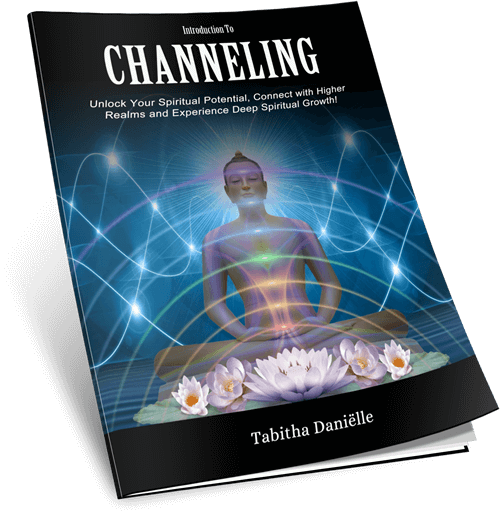In a world often filled with division, strife, and negativity, unconditional love, forgiveness, and compassion hold a profound and transformative power. These qualities have the potential to not only heal and strengthen your individual soul but also to mend the fabric of this interconnected world. Embracing unconditional love is not merely a platitude but a spiritual journey that can lead you to a more harmonious and compassionate existence.
Understanding unconditional love
 At its core, it’s the purest and most profound form of affection and care that you can experience or offer.
At its core, it’s the purest and most profound form of affection and care that you can experience or offer.
Unlike conditional love, which is often contingent upon specific circumstances, actions, or expectations being met, unconditional love operates outside the realm of constraints.
It transcends the boundaries of time, place, and individual imperfections with an unwavering constancy.
In its purest essence, unconditional love is a boundless force free from judgment or limitation.
It flows freely from the heart, accepting both the recipient’s beauty and flaws.
It is the love that a parent has for their child, regardless of their child’s behavior.
It’s the love that friends share through thick and thin, enduring trials and tribulations.
It’s the love that seeks to understand, support, and uplift without hesitation.
Embracing unconditional love means opening yourself to a higher state of consciousness, where love knows no bounds and shines as a beacon of light, guiding you on your spiritual journey toward a more compassionate and harmonious existence.
Significance of embracing unconditional love
Embracing unconditional love means accepting yourself and others without judgment or conditions.
It means opening your heart to the imperfect, the broken, and the challenging aspects of life.
When you do so, you experience a sense of freedom and connection that is deeply spiritual.
Unconditional love is not blind; it sees the truth in all its forms and loves anyway.
It is a powerful force that can heal wounds, mend relationships, and transform your life.
Practicing Unconditional Love
Cultivating self-love
 To embrace unconditional love, you must begin with yourself. Self-love is the foundation upon which all other forms of love are built.
To embrace unconditional love, you must begin with yourself. Self-love is the foundation upon which all other forms of love are built.
It involves accepting yourself as you are, with all your apparent ‘flaws and imperfections’.
Embracing unconditional love starts with self-compassion and self-acceptance.
When you love yourself unconditionally, you become more resilient in the face of adversity, and your capacity to love others deepens.
Extending unconditional love to others
Extending unconditional love to others means letting go of judgments and preconceived notions.
It means practicing compassion and understanding.
When you approach relationships with this kind of love, you create an atmosphere of trust and emotional safety.
Embracing unconditional love in your relationships fosters connection and understanding.
Real-life examples of individuals who have forgiven and loved unconditionally despite the gravest of circumstances show you the incredible power of this kind of love.
It can lead to forgiveness, reconciliation, and healing.
The Connection Between Unconditional Love and Forgiveness
Forgiveness as a transformative force
 Forgiveness is intimately connected to unconditional love.
Forgiveness is intimately connected to unconditional love.
You release yourself from anger, resentment, and pain when you forgive. You let go of the conditions you placed on your love.
Forgiveness is the bridge that allows you to fully embrace unconditional love.
Forgiveness is not about condoning the wrongs committed against you but about freeing yourself from the emotional chains that bind you.
It is a spiritual act of liberation.
Steps to forgive unconditionally
- Acknowledge the hurt: To forgive, you must first acknowledge your pain.
- Understand the other person: Try to see the situation from their perspective.
- Let go of anger and resentment: These emotions only weigh you down.
- Release expectations: Forgiveness means releasing any expectations of an apology or change in the other person.
- Heal and move forward: Forgiveness is a healing process that allows you to move forward with love and compassion.
Stories of individuals who forgave heinous acts, such as the forgiveness extended by Eva Kor to the Nazis who subjected her to experiments during the Holocaust, demonstrate the immense power of forgiveness in embracing unconditional love.
Cultivating Compassion in Everyday Life
The role of compassion
Compassion is the natural offspring of unconditional love. It is the empathy and concern you feel for the suffering of others.
Compassion is a force that drives you to alleviate the pain of others and to act with kindness.
Compassion is the expression of your unconditional love in action.
It is a spiritual quality that connects you to the collective human experience and reminds you of your shared humanity.
Overcoming barriers to compassion
To fully embrace compassion, you must overcome the barriers that often stand in your way.
- Judgment and Bias: Your decisions and biases can cloud your ability to be compassionate.
 To overcome them, you must practice self-awareness and actively challenge your prejudices.
To overcome them, you must practice self-awareness and actively challenge your prejudices.
- Fear of Vulnerability: Compassion requires you to open your heart, which can make you feel vulnerable.
Embracing this vulnerability is essential for authentic compassion.
- Compassion Fatigue: Caring too much can lead to burnout.
It happens when you are more empathetic than compassionate, which means that you are taking on the emotions of someone else, feeling as hurt, sad or bad as they are.
By doing that you are not really helping someone, even though they may feel seen and heard.
Compassion on the other hand is understanding their emotions, relating to it, but looking at it from a perspective of being willing and able to help.
By listening, without diving into your emotions, but staying with an open heart.
It’s essential to find a balance between caring for others and self-care and a balance between empathy and compassion.
Embracing unconditional love in challenging times
 During difficult times, such as conflicts, personal crises, or loss, embracing unconditional love, forgiveness, and compassion becomes particularly challenging yet profoundly important.
During difficult times, such as conflicts, personal crises, or loss, embracing unconditional love, forgiveness, and compassion becomes particularly challenging yet profoundly important.
Conflict Resolution: Unconditional love can be the catalyst for resolving conflicts peacefully.
When you approach conflicts with compassion and forgiveness, you create an atmosphere of reconciliation.
Grief and Loss: Unconditional love can provide solace and support during grief and loss. It allows you to process your emotions with kindness and patience.
In challenging times, you must remember that embracing unconditional love is not a sign of weakness but an embodiment of strength and resilience.
Conclusion
In a world often dominated by judgment, anger, and division, embracing unconditional love, forgiveness, and compassion becomes a beacon of courage and spirituality.
It beckons you toward a path of profound self-discovery and a deeper connection with those around you.
This journey isn’t just a means of personal growth; it’s a transformative process that extends to heal the very fabric of our society.
Embracing unconditional love is a spiritual journey that leads to a more harmonious and compassionate existence.
As you wholeheartedly welcome these qualities into your life, you transcend mere existence and become an agent of profound positive change.
Like pebbles cast into a tranquil pond, your acts of love, forgiveness, and compassion send forth ripples that touch the lives of others, extending far beyond your own individual existence.
In nurturing these qualities, you unearth your most genuine and meaningful purpose, contributing to the collective awakening of humanity.
…Invitation to put it into practice
Ever wondered how to truly live with compassion, unconditional love, and forgiveness? Channeling can be your gateway to these healing principles, turning ideas into daily guidance. Join my free ‘Channeling Circle of Wisdom‘ community now, and start transforming your spiritual journey into a vibrant, lived experience.
Don’t wait, embrace this opportunity to deepen your understanding and practice!













